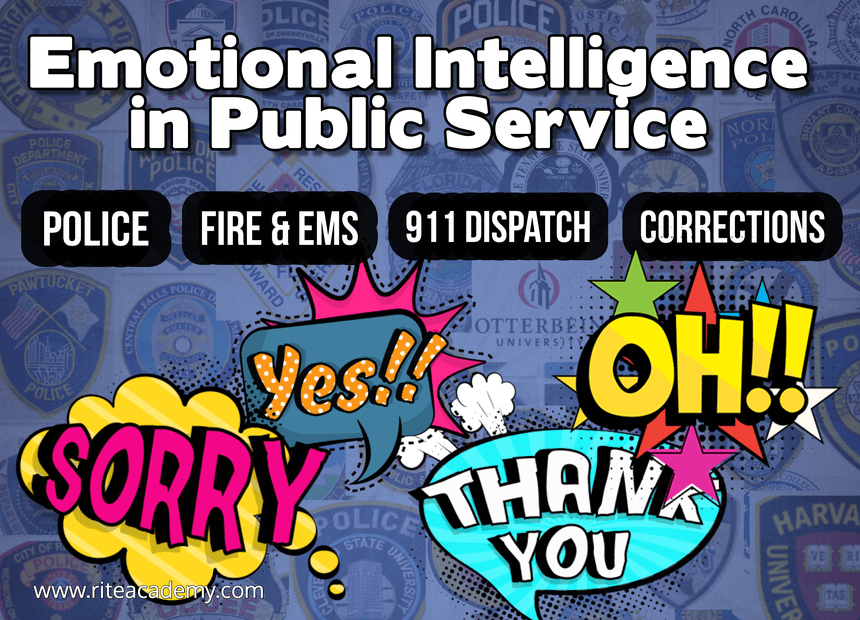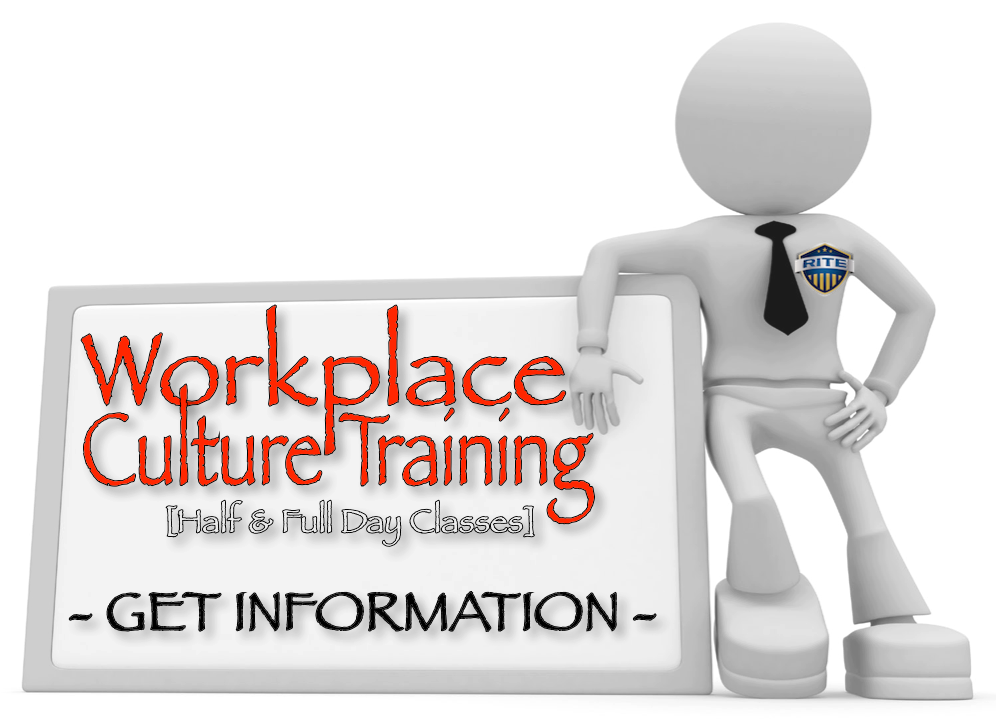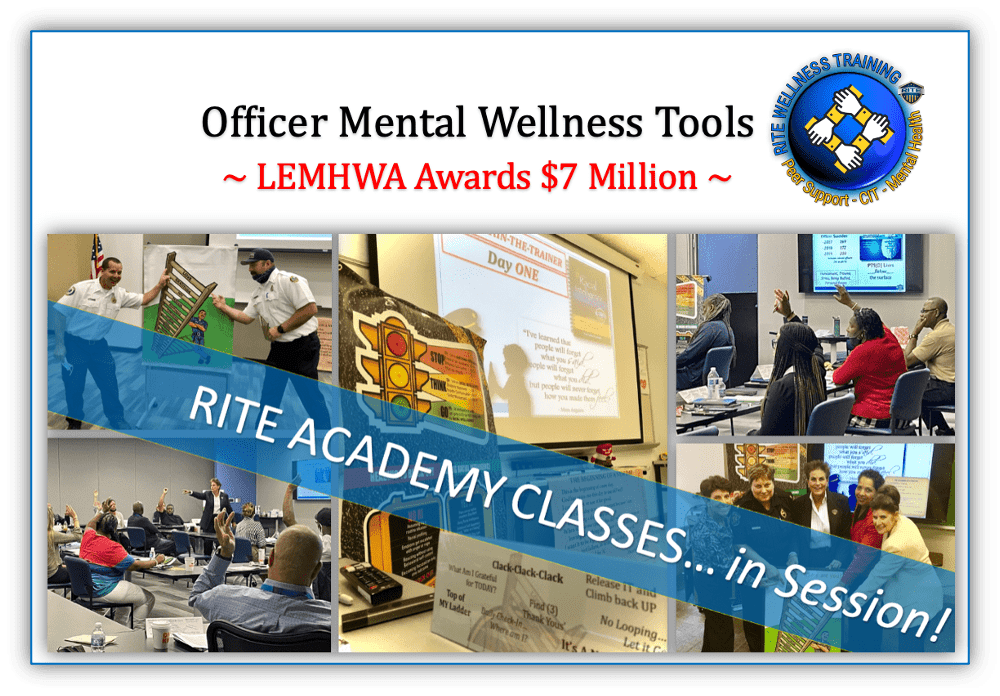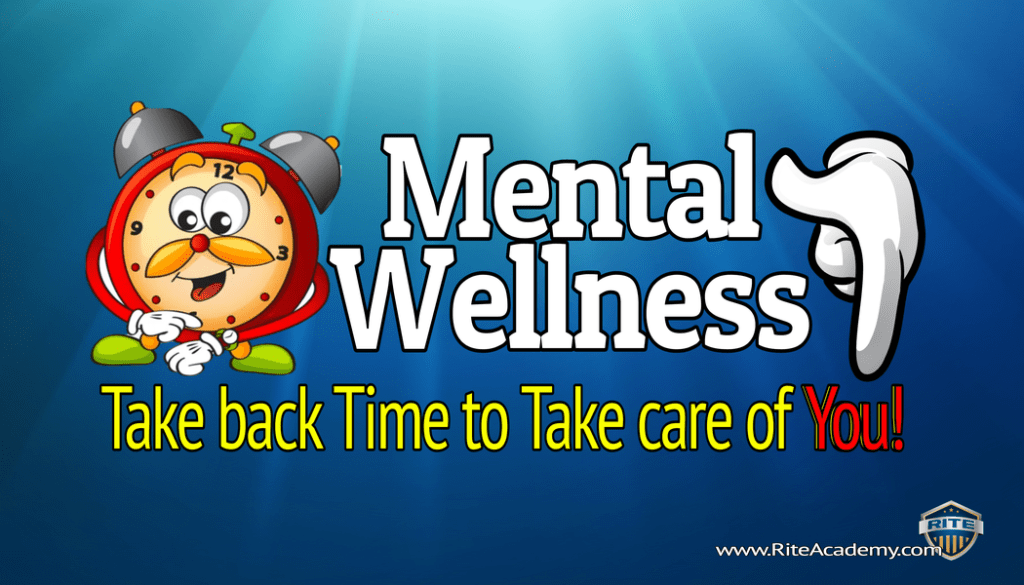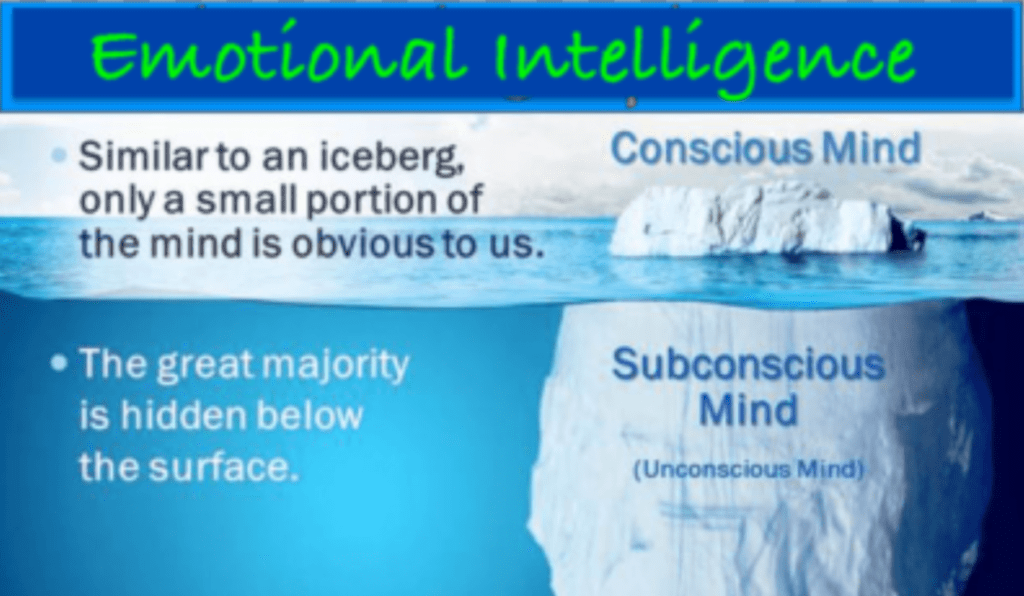Whether you realize it or not, Emotional Intelligence (EI) impacts your life on a daily basis, especially as a public service professional dealing with people. To improve your attitude, as well as the professional workplace morale of your organization, EI is the key factor that changes everything.
If you’re in public service, having Emotional Intelligence helps keep you calm when people try to push your buttons.
We all show emotions differently. And when buttons get pushed, it’s easy to lash out if there are negative things in our life (personally or professionally). Stress can and will influence how our Emotions pour out of us!
5 signs of low emotional intelligence
- You get stressed easily – People who fail to use their emotional intelligence skills are more likely to have anxiety, depression, drug abuse, and even feelings of suicide.
- You struggle showing empathy – People with low EI have difficulty showing empathy and kindness. When handling conflict they default to passive or aggressive behavior.
- You hold grudges – Holding on to a grudge means you’re holding on to stress. Letting go of a grudge makes you feel better immediately and can also improve your health.
- You don’t know your Hot Buttons – Everyone has triggers, implicit bias, and people that push their buttons. Emotionally intelligent people study their triggers and learn to avoid situations and people before it brings them down the Ladder.
- You blame others – No one can MAKE you feel anything (happy, sad, angry) that you don’t want to feel. Blaming others only holds you back.
Those 5 are just a few of the ways low emotional intelligence can bring you down personally and professionally.
Why is Emotional Intelligence critical in public service?
The smartest person is not typically the most successful in the agency. The person who can work with everyone, on all levels on any given day, is the one who will find the easier path to success.
Your IQ can surely help you get into college, but it is your EI (Emotional intelligence) that will help you manage stress and emotions along the way. Whether you are communicating with the public, going through the academy, or handling situations at home, Emotional Intelligence helps you succeed.
Emotional Intelligence makes you aware of your emotions, and helps you control your emotions in any situation… especially under pressure.
High emotional intelligence means you VALUE yourself and others at all times.
Misconduct doesn’t happen out of the blue…
Leaders failing to address poor behavior, like taking a blind eye to misconduct, often face larger issues, such as:
- Excessive use of force
- Poor Media Exposure
- Lawsuits
- Loss of Community Trust
Have you ever said, “What Were they Thinking?”
Chances are they were NOT thinking. When a person has low Emotional Intelligence, they tend to acte without adding the proper emotions (EI) into the equation, which helps make better decisions.
3 situations with Low Emotional Intelligence
The Toxic Employee – Don’t look the other way
Ever work with someone who show up angry or is just a ball of negative energy? It’s not fun for anyone!
If their behavior is allowed to fester, it will have a direct effect on all co-workers. The cascading downward effect inside your organization will affect performance, negatively impact your workplace culture, and increase turnover.
https://riteacademy.com/misconduct-comes-from-toxic-employees-that-lack-emotional-intelligence/
Entitlement Complex – It’s all about ME, me and Me!
Ever work with an entitled person? They have their own set of rules, it’s their game and everyone needs to play along with them. They are usually self-centered, and don’t care to be a team player. They are the bullies of the department, and they don’t like change.
Entitled people are usually low on the Emotional Intelligence scale.
Block-Out Syndrome – Failure to Duty-to-Intervene?
Every witness a co-worker snap into the HULK, totally out-of-control in moment’s notice? Chances are they’ve gone into block-out and see only what they want to see as the outcome.
https://riteacademy.com/failure-to-recognize-block-out-syndrome-faceless-killer-in-public-service/
Block-Out Syndrome means that person has fallen off the emotional ladder, and they are not thinking, hearing, or seeing clearly. This can be career-ending for person in block-out as well as others at the scene… not to mention the negative media attention afterwards.
Duty-to-Intervene, means you must Step-in, Tap Out, and Take Over to help that person SNAP OUT OF IT… No matter the rank.
Low Emotional Intelligence in various public services:
Police Departments
- Ramping up the call, just because you feel like it
- Clicking the handcuffs, a little tighter then necessary
- Contagious Shooting at suspect because co-workers are shooting
Fire Departments
- The toxic employee that continually complains, causing problems
- Running into the threat, not seeing the whole picture
- Turning a blind eye on co-worker stealing at the scene
Corrections and Jails
- Being complacent because you are bored
- Ramping up inmates, just because
- Unwillingness to be flexible with positions
Campus and University Police Departments
- Always being the enforcer when it’s not needed
- Judging the call – “Here we go again”
- Lack of Empathy for students
911 Communication Operators
- Not listening to all the facts from the caller
- Judging the habitual caller
- Always being the know-it-all in the dispatch room
EMS
- Assuming the outcome when first arriving
- Taking shortcuts because it’s not important to you
- Not reporting all the facts to cover for your partner
Having a higher level of emotional intelligence is VITAL to a professional workplace culture. It means that everyone in the organization is VALUED. Reinforcing emotional intelligence standards will help reduce problems, retain employees, while making the organization THRIVE.
https://riteacademy.com/emotional-intelligence-is-a-vital-sign-for-public-safety/
It may be time for your Agency and Support Groups to improve the workplace with Emotional Intelligence training
Training Classes
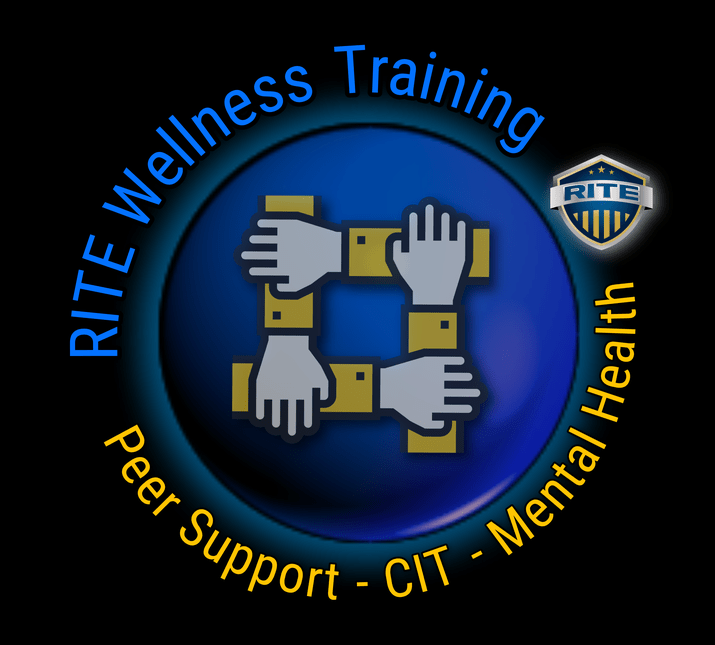
Since 2015, RITE has been a leading training provider for ALL in Public Service. RITE Tools and exercises help Agency support teams like: Peer Support, CIT, Mental Health, Training Academies, Speciality Teams (SWAT, Hostage Negotiations, and FTO), and Chaplains.
With every class, RITE Tools and Banners are included in the training, and left behind for the Agency and Support Groups to use. RITE is not a check-the-box class, but IS training that actually works and continues working for an improved professional workplace that builds morale.
RITE Academy Stats
- Trained 1200 agencies on Professional Workplace Culture
- Created over 930 RITE train-the-trainers
- Gave out more than 550,000 RITE Tools for employees
- Provided over 100 newsletters for agencies to give to their employees
- Helped agencies reduce their use-of-force incidents by 65%
- Educated local governments, state, and federal representative on public safety reform
